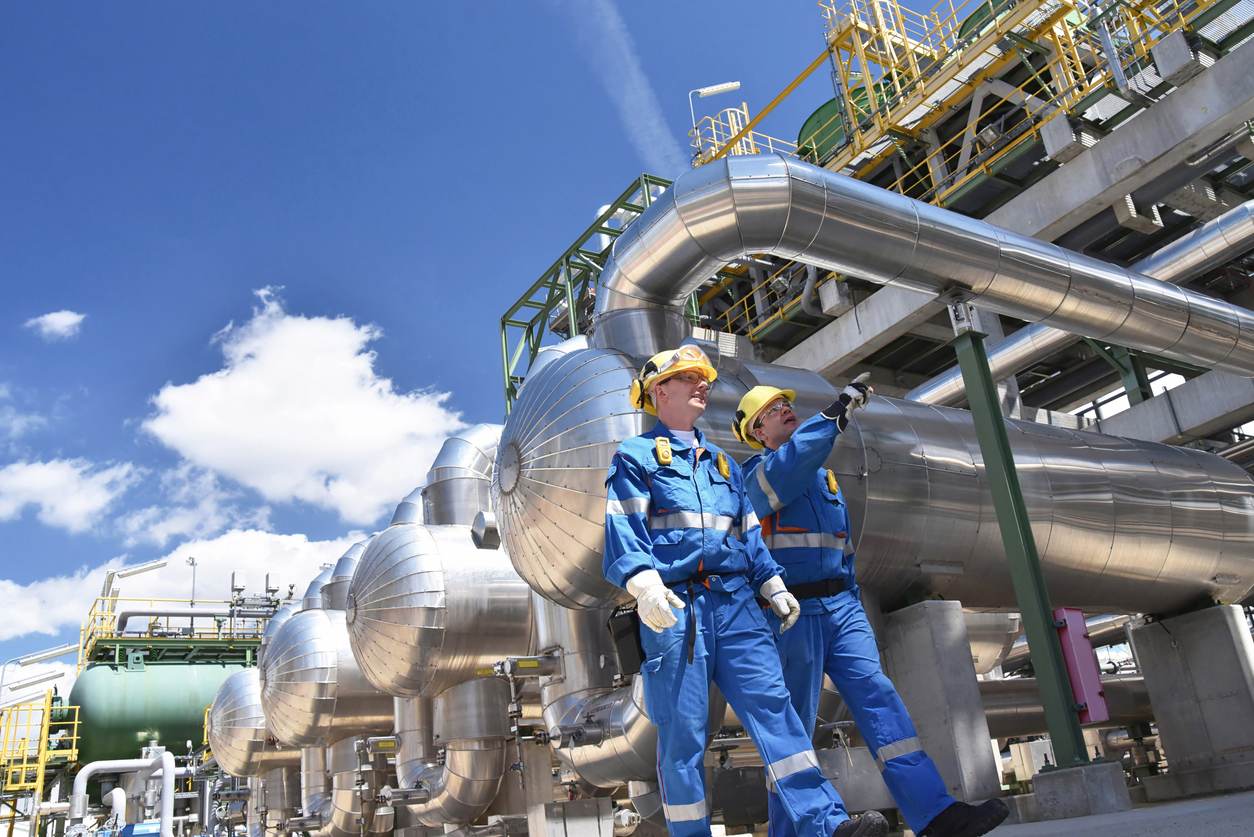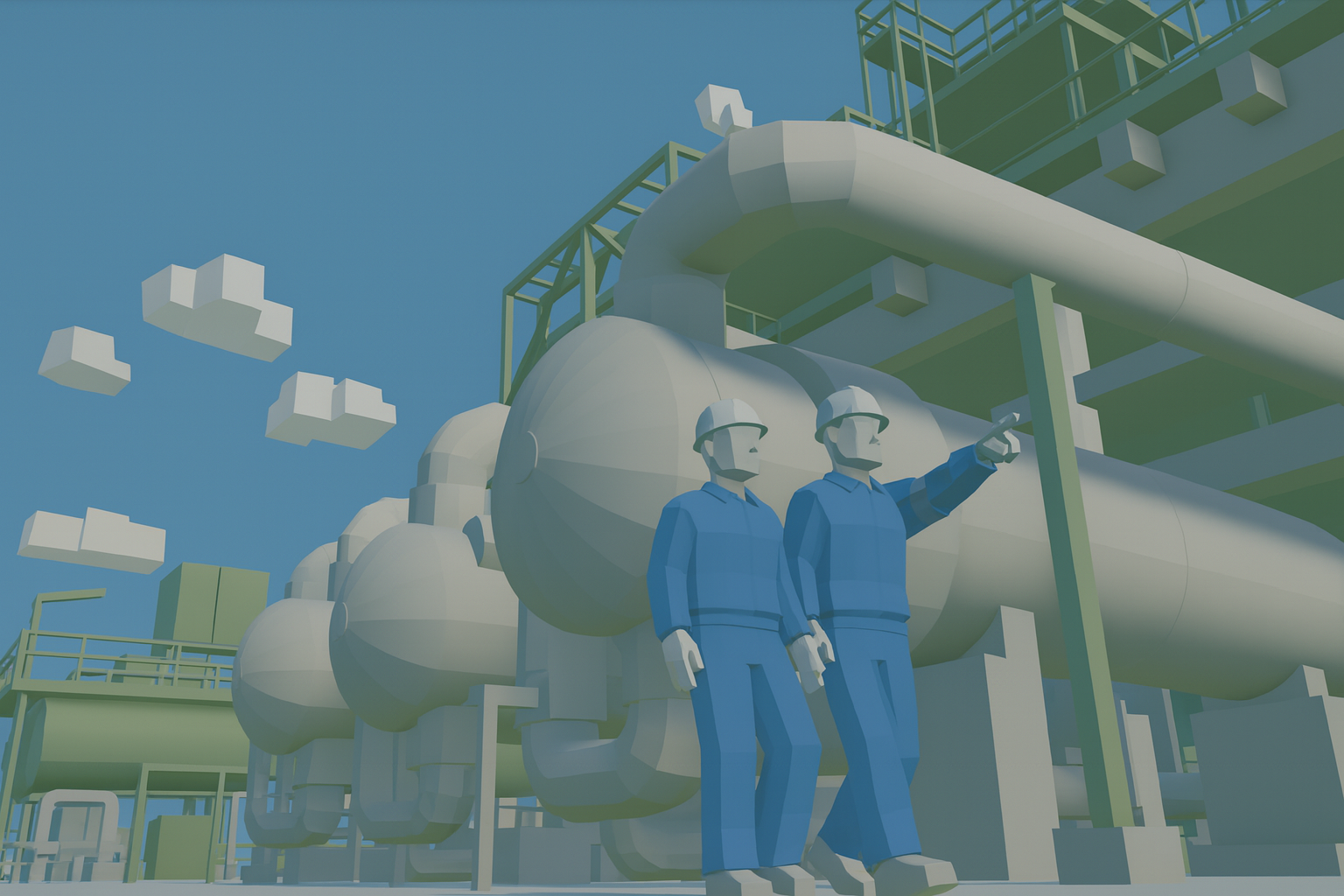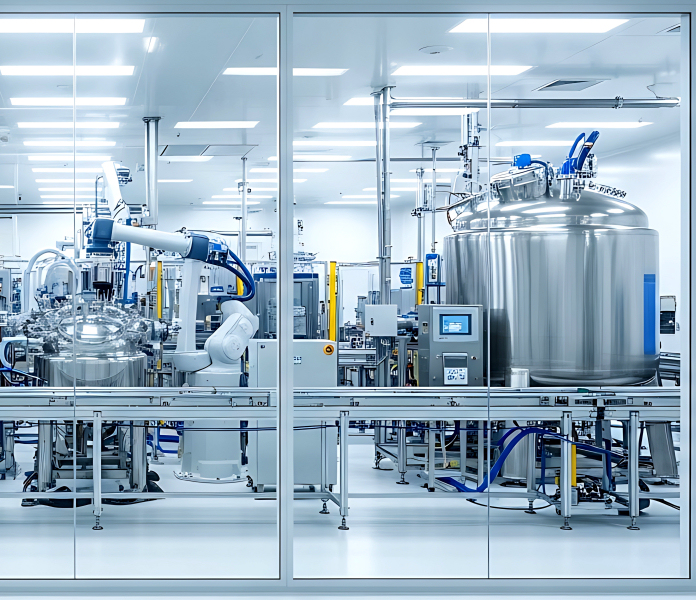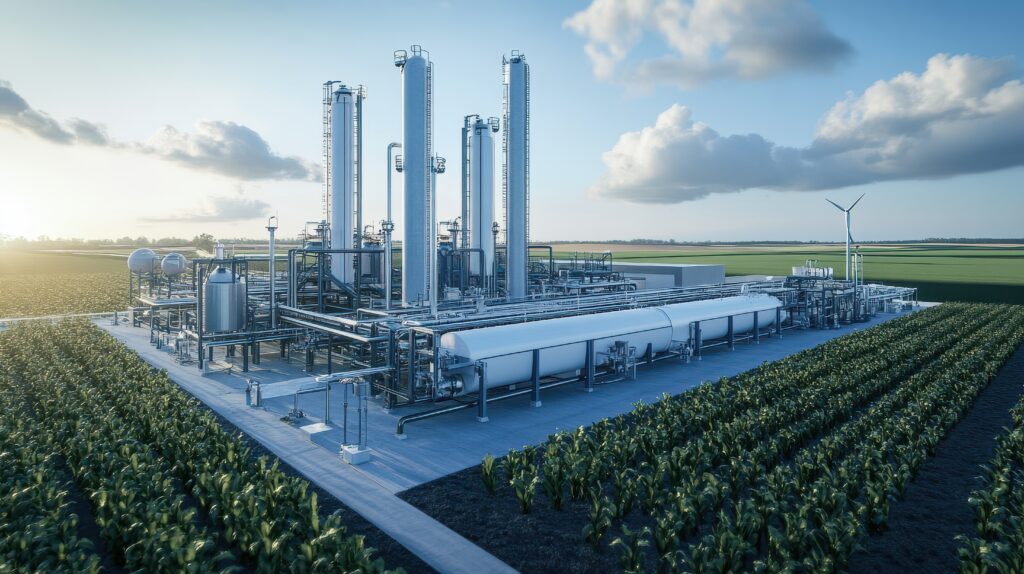Chemistry, Pharmacy & Biotechnology
Process automation solutions from WinMOD
Chemistry and Pharmacy
With the introduction of WinMOD in 1995, these industries were among the first users of the WinMOD system platform. The already high quality requirements and established procedures for performing factory acceptance tests (FAT) and process validations favoured the early use of simulation-based software testing.
Chemistry
Process control systems with extensive, technology-oriented function libraries are typically used for the automation of technological processes. The main reason for this is to make optimum use of the often complex instrumentation required for control and monitoring – from simple to complex drive and sensor technology.
With the replacement of hardware-based testing systems with software-based (simulated) testing systems from 1995 onwards, factory acceptance tests (FAT) became considerably simpler and more efficient. In this context, WinMOD provides extensive simulation libraries for automation components. In addition, the system offers users the option of expanding these libraries themselves.
WinMOD provides a real-time base library for simulating technological processes and the associated process variables, such as pressure, temperature, flow rate, fill level, concentration or pH value. This enables the simulation of typical control system functions and their combination into complete process function libraries based on them.
Optimised engineering tools, such as process and engineering assistance, also support users without in-depth mathematical or process engineering knowledge and enable efficient use of the software.



Pharmacy
The central processes in this area include the chemical or biological synthesis of active ingredients and the fabrication of finished pharmaceutical products. These are usually highly automated and therefore place high demands on the quality assurance of the automation systems used and their programming.
In 1978, the US Food and Drug Administration (FDA) published the first guidelines on process validation. The aim of these guidelines was to demonstrate that production processes are repeatable and reproducible. In the pharmaceutical industry, these requirements led early on to the establishment of procedures that ensured the highest level of safety and quality through comprehensive control and reporting obligations.
With the advent of automation and the use of digital control systems – such as PLC and SCADA systems – the topic of process validation also became increasingly important in automation and process engineering.
Starting in 1995, major pharmaceutical companies, particularly those in Switzerland and Germany, recognised the new possibilities offered by WinMOD for simulation-based software testing. Through their early adoption, they significantly influenced the further development of the WinMOD system platform – from basic functions to the verification and documentation capabilities of complex test scenarios.
WinMOD is used in numerous process steps in pharmaceutical production, including multi-stage reactions, filtration, crystallisation, distillation, drying, centrifugation, chromatography, freeze drying, granulation, mixing and packaging. The software is also used in clean room environments and in sterilisation processes.
Biotechnology
Traditional automation concepts, combined with increasingly new methods of measurement data acquisition and analysis technology, also require continuous further development of the necessary simulation components.
The production processes used in biotechnology are similar in many respects to those used in the chemical and pharmaceutical industries. However, the key difference lies in the use of biological systems – such as microorganisms, cell cultures or enzymes – to manufacture products. Compared to traditional chemical and pharmaceutical plants, significantly smaller quantities of material are processed.
In the pharmaceutical sector, biotechnological production of essential raw materials is becoming increasingly important (see section on pharmaceuticals).
Other biotechnological plants, particularly in the field of green chemistry and energy production, are often operated decentrally in non-industrial environments. They are therefore usually designed to be self-sufficient and highly automated. In this context, virtual commissioning (VC) is becoming increasingly important – for example, in the development and operation of plants for the production of green ammonia or biogas plants for agricultural businesses.

Further process automation solutions
Typical processes that carry out continuous or batch conversion of substances.
They are divided into main and auxiliary processes.
The aim is the economical and safe fabrication of basic materials or specialised products for all industrial sectors.
Similar production processes are used as in the chemical/pharmaceutical industry, but the core here is the use of microorganisms, cell cultures or enzymes for the fabrication of products.
In future, it will be used in various areas such as pharmaceuticals, green energy and green chemistry.
The focus is on processing, preserving and refining agricultural and raw materials. Typical processes include material- and energy-oriented product manufacturing, often combined with strict quality and hygiene standards.
All processes involved in the extraction and processing of raw materials (coal, ores, salts, earths) and their conversion into basic industrial products (steel, cement, gypsum, various other building materials). These processes are usually very energy-intensive.
Refrigeration machines for cooling and system components for cooling distribution and utilisation are a key factor in both industrial plants and building automation.
Energy generation plants based on fossil fuels (coal, gas, oil), nuclear power plants and increasingly promising variants based on environmentally friendly resources such as hydropower, solar, wind, tidal, etc., as well as energy distribution plants, are becoming increasingly highly automated with extreme demands on their availability.
Water supply, from extraction, treatment, storage and distribution, as well as wastewater disposal, including transport, storage and treatment for environmentally sound disposal, are fundamentally important for a modern society and its industry.
Technical installations in road transport (general traffic control, tunnels, bridges), rail transport (signalling and switch systems, signal boxes, etc.) and waterway transport (locks, weirs, ship lifts)
All areas of technical building equipment such as ventilation, heating, air conditioning, security and fire protection that aim to improve energy efficiency, comfort, safety and cost-effectiveness in buildings.
General shipbuilding for civil, technical and military use, offshore installations as bases for wind farms, gas and oil production facilities, and underwater stations.